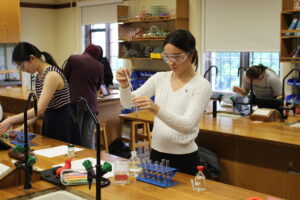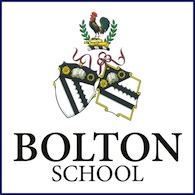 There is as sharp a focus on the landscape of education as there has ever been. The structural systems in which our children are educated for life are under immense scrutiny, whether that be the teacher supply crisis in the state sector, the condition of school buildings, school attendance post-Covid, changing behavioural norms or further discussion about assessment and exams. It is not surprising school choice may well be at the front of mind for many parents.
There is as sharp a focus on the landscape of education as there has ever been. The structural systems in which our children are educated for life are under immense scrutiny, whether that be the teacher supply crisis in the state sector, the condition of school buildings, school attendance post-Covid, changing behavioural norms or further discussion about assessment and exams. It is not surprising school choice may well be at the front of mind for many parents.
For some, one of those choices has always been about whether to look at independent education. In the landscape of education, independent schools are the oldest piece of the jigsaw, before church schools and long before the idea of state education for all. Schools at which some people paid and others were supported have existed for centuries. Bolton School itself is over 500 years old, and, what is now the Girls’ Division, was one of the very first proper girls’ schools in Victorian times, nearly 150 years ago. This choice used to be about whether the school was right for your child and, for those not eligible for a bursary, affordability – which in turn was about lifestyle choices and priorities for the family. More recently, the forensic lens of the public narrative has brought other strands of thinking to the mind of parents. Three of those especially are whether affordability will be impacted by any VAT charges; whether schools will remain financially viable as businesses, since no one wants their child to have to change school if they can help it and, finally, and most philosophically, are independent schools somehow not fit for the morals of a modern society?
Let’s take the last, first. One of the bedrocks of our society is choice, the ability to choose what we want for our family and ourselves, so long as that choice does not impact others. This choice is what independent schools are all about. No parent should be made to feel guilty about wanting to afford an independent education for their child. The fact that independent schools often illustrate and innovate excellence is good for all – so often education as a whole has benefitted from the lead of the independent sector, which can be nimbler and better able to respond to change. A case in point being how quickly such schools adapted in Covid times to online learning. No parent should feel guilty about spending money to secure a good education. The house price premium around strong state schools most often far exceeds the costs of an independent education. And the current condition of state education is emphatically not caused by the existence of independent schools. There are many reasons why state schools are as they are, but it is not because there is an independent school down the road.
What about certainty for the future? Many independent schools are thriving in terms of their sound financial management and will most certainly be around for the time your child will be in education. The latest report using the ISC/Oxford Economics economic impact modeller has found Bolton School contributes around £25 million pounds to the local economy. Adding the UK-based supply chain and the induced GDP, which is generated through the spending of staff and the school’s suppliers’ staff, this figure doubles. The school generates one of every 200 pounds made in Bolton. It also contributes some £16 million in tax revenue.
Some parents worry that large and successful schools like Bolton may be too big and impersonal. A visit during the working day or at an open event to talk to pupils will dispel such worries. The careful use of small form groups, a carefully thought through and well-resourced structure of pastoral support and a well-designed curriculum mean that children do not get lost in the system, they in fact get nurtured by it. Size and resource allow investment in the right people to nurture and develop your child. With size also comes opportunity. In the last three days pupils from Bolton have been at the national chess championship, taken instrumental music exams at the highest level, canoed on Duke of Edinburgh expeditions, visited our outdoor centre in Patterdale, played cricket against the MCC, attended athletics finals, a debating competition, performed in musicals and kayaked in the Alps. That is just a snap shot. There is something for everyone and each pupil finds their passion in a well resourced and large school looking after them and their development.
So, if for that certainty for the future you decide that big may well be better, do not worry that this may mean poorer pastoral care and personal attention. Some larger schools also have an ‘all through’ provision from nursery to sixth form as we do at Bolton. That can be attractive for parents to get to know the values of a school that chime with their own ambitions for their child and to know that there will be a constant thread as their child grows up. For us, we also have the ‘best of both worlds’ with all of the advantages of single sex education for the older pupils and with all the advantages of being able to mix and mingle when that adds value to an activity or helps young people develop.
And what about that VAT? Will it suddenly make fees unaffordable? None of us has a crystal ball to see the future, but often the best way to see what will happen in the future is to look at how a school has addressed challenges in the past. This gives an insight into what matters for those leading the school and how they are likely to react to future challenge. For example, at Bolton we recognised that to be as inclusive as possible we not only needed our bursary programme but also needed to keep fees affordable for as many families as possible. To fulfil that aim our fee rise every year since 2015 has been 2%. This year it has had to be 5%, with the abnormal inflationary pressures around at the moment. We did that to create certainty for parents, so that they did not commit to fees at one level and then find them somewhere very different only a few years later. Relative to wage inflation for most across that time the school has become relatively less expensive. Certainly, we have slipped down the league table of costs of north west independent schools. Of course, in this instance being less expensive most definitely does not mean being less good. The clear focus at Bolton is on being affordable, but also being worth affording. We must provide a great school for those pupils with facilities and equipment we need to be at the cutting edge of education. Above all, we must have great teachers to inspire the children with their own passion for their subject. It is for this reason we moved to 5% this year as we cannot allow what we do to diminish, yet we absorbed much of the inflationary costs in our financial planning. In short, we shared the burden of unusual financial times with our parents. That is exactly what we did during Covid times, giving back to parents the fee revenue we had not spent during that time. This was fair and in a simple and obvious way shared the burden of difficult times.
As and when there is a change in the political aspect of the educational landscape, and perhaps independent school fees are taxed, what has happened in the past is very likely to happen in the future. The school will wish to share the burden of new costs with parents and it will wish to provide certainty and reassurance about making sure any change in fee is measured and as manageable as possible for as many people as possible. I can be completely sure that all of any new tax burden would not be passed on to parents and also completely certain that whatever must be afforded will not just be added all of a sudden. As with all we do, school and parents will work together in the best interests of the pupils, as they are what a school is all about.
A significant help in all of this is the bursary programme, where currently 1 in 5 pupils are supported financially and by 2030 we aim for that figure to be 1 in 3. The programme is funded by the tremendous generosity and philanthropy of former pupils. This tells you all you need to know about the ethos of the school, since so many former pupils feel so strongly that their education gave them the best start in life that, when they can, they give back to commit to give that very best start in life to the next generation. This strong programme will keep us inclusive, a varied and vibrant community of able young boys and girls who will grow into young men and women who will make a difference to society.
So, as the educational landscape shifts in coming years, a thriving independent education sector will be part of it. The choice of an independent education is not for everyone, but if it is for you, be reassured that you will have that choice to make and you can do so confidently. Bolton School began when Henry VIII was happily married to his first wife; it reshaped itself during the civil war and it rebuilt itself during the First World War and the great depression of the 1920s. We, and many other independent schools, will be around for a few centuries to come, doing what we do well – blending long established traditions and values with modern and forward looking approaches.

Leave a Reply